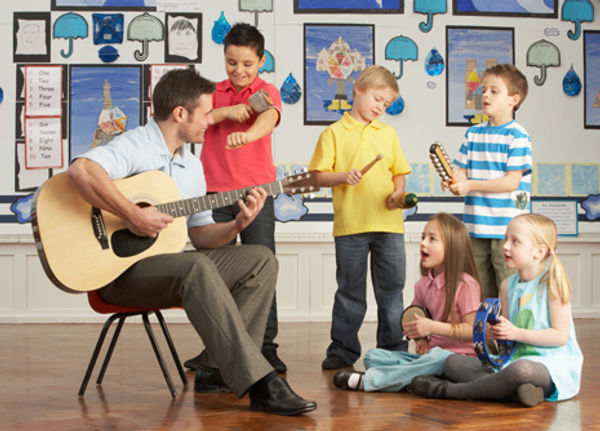MUSIC THERAPY

What Is Music Therapy
Music Therapy involves a Child, Parent and Therapist building a relationship together through freely exploring the musical instruments, through singing familiar songs, and through the spontaneous use of voice.
As a Music Therapist starts to connect with a Child, working with the family and other professionals, goals are set and agreed, aimed at improving their life and making them happier.
Children living with Down Syndrome may present with needs in one or more areas of development. Music Therapy goals are therefore set to help address several needs specific to Down Syndrome. Goals can vary from Child to Child, but examples can include using music to help improve:
-
Communication Skills
-
Physical Development
-
Social Skills
-
Concentration
-
Cognitive Skills
-
Emotional Well-being
What Happens in a Music Therapy Session?
Depending on a Child’s individual needs, the Music Therapist may recommend referral to either a one-to-one or group Music Therapy setting. Parents can also attend Music Therapy sessions - and their participation is invited. This input is often invaluable in encouraging their Child’s progress.
During a session, goal-focused activities will be presented. One example could include - helping a Child to improve their social skills. This can involve practicing sharing and turn-taking on the instruments, as well as waiting and listening to the music-making of others. As activities are introduced in a playful way, the Child can then be motivated to participate with enjoyment while, at the same time, they are learning important developmental skills.
Participation in therapy songs can also motivate a Child to develop Lámh signing as a valuable foundation for their early language skills. Encouraging a Child to sound out new words and develop phonemic awareness, are also areas in which session singing can help. Where appropriate – additional song recordings are offered for use at home, providing a resource for Child and Parent to strengthen and build on progress made in Music Therapy sessions.
During music-making tasks, inviting a Child to perform a range of actions with the instruments, can also help development of their fine and gross motor skills. As the Child exercises and hones a range of functional grasps in order to elicit sounds from the instruments – in time, many of these skills can be transferable to functional everyday settings outside of their sessions.
Participation in action songs can also help with developing concentration. When following through on directions that are sung and modelled by their therapist, a Child is encouraged to exercise their listening, observation and processing skills.
While session activities aim to challenge a Child to realise their full potential, they are also tailored so that each Child can succeed – allowing a sense of satisfaction and achievement to be gained from Music Therapy.
At the end of a course of Music Therapy, progress is reviewed in a written report which will also detail future recommendations aimed at supporting further development.
Currently Music Therapy sessions are being delivered within the centre weekly on a Monday. New children are welcome to join and will need to attend an initial three week assessment.

